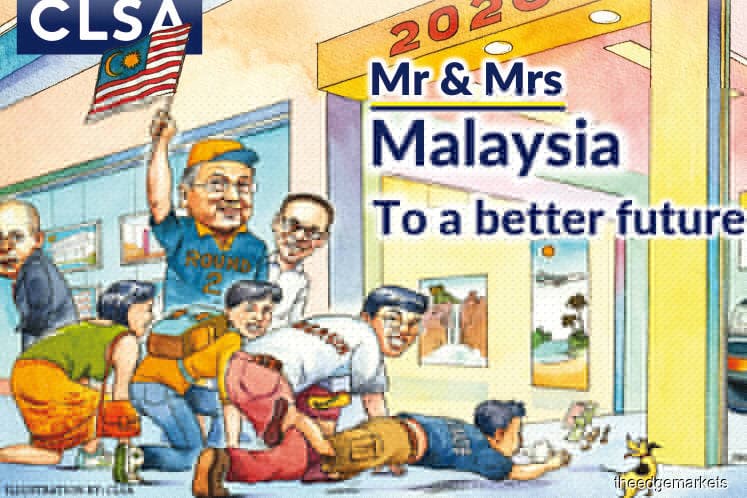
This article first appeared in The Edge Malaysia Weekly on October 7, 2019 - October 13, 2019
SINCE CLSA’s last update in 2017, Malaysians have seen what was once perceived to be a pipe dream turn into reality when the Barisan Nasional regime lost its grip as the ruling government a little over a year ago.
While the effectiveness of the actions taken by the Pakatan Harapan government remains an unknown for now, Malaysians are viewing the glass as half full in 2020, providing respite from what has been a challenging, and often confusing, time for consumers and businesses.
In its new proprietary survey, CLSA focuses on consumers, and evaluates its results against its findings in 2017 to gauge how sentiment has changed among Malaysians, especially after the major events of last year.
With better scores across the board, even after the exuberance observed in the 2017 survey, Malaysians are clearly buoyed.
Conducted in June 2019 with the participation of 2,529 families across all demographics and geographies, the survey is the latest instalment of CLSA’s long-running Mr and Mrs Asia series of reports.
The survey examines the numerous factors affecting the livelihood of an average Malaysian family, such as their opinions and expectations for the economy, politics, discretionary and non-discretionary preferences on key items such as banking and telecoms, their household’s financial wellbeing and perhaps most vitally the change in their spending habits.
This was helpful to CLSA in its forecasts of which stocks and which sectors should benefit the most.
CLSA’s 2019 findings show that most people are still on the fence when it comes to the Pakatan Harapan regime but are optimistic over the longer term, indicating a need for consistency from the new ruling government to ultimately bowl them over.
Regardless, Mr and Mrs Malaysia view economic growth and country security as primary concerns, with politics and racial issues taking a back seat. In a nutshell Mr and Mrs Malaysia are more concerned about their own personal finances compared to racial issues.
With the seemingly populist stance of the new administration (case in point being the abolishment of the much-maligned Goods and Services Tax) and the move towards reform gaining momentum, expectations on household finances for the coming year are high as exemplified by improving consumer sentiment, which has been rising ever since the lows in 2015.
Mr and Mrs Malaysia’s aspirations for big-ticket purchases suggests greater economic confidence across demographics. This provides some upside risk to the slowdown in gross domestic product growth (GDP) in 2020. (CLSA predicts +3.2% by 2020 from +4.7% in 2018, supported by the return of infrastructure projects, foreign direct investment from China and a revival of SME-led exports.)
CLSA’s findings depict that green shoots are emerging to indicate a better year ahead, augmented by the absence of wayward political distractions. With optimism high and households more confident of their future, CLSA is certain that Mr and Mrs Malaysia are looking to a better future.
SURVEY METHODOLOGY AT A GLANCE
CLSA tried to ensure that the composition of its respondent pool reflects the larger reality, particularly in terms of the two major influences on Mr & Mrs Malaysia’s attitudes: ethnicity and state (as a proxy for income levels).
Per its previous edition, CLSA compared the results to the 2017 iteration of Mr & Mrs Malaysia. This comparison will be of particular interest as it contrasts the key event that is the historic change of government, and provides an insight into the early formative opinions of the new regime.
CLSA attempted to survey the exact same respondents as the 2017 edition to get a precise apples-to-apples comparison. However, only a handful maintained the same contact details, hence c.10% of its 2019 respondents were the same as 2017.
CLSA was unfortunately unable to compare between income groups due to the Personal Data Protection Act (PDPA), hence states were utilised as a proxy. Other potential differences include ethnicities and age groups; both are key factors in terms of the country’s voting base/consumer behaviour.
Save by subscribing to us for your print and/or digital copy.
P/S: The Edge is also available on Apple's AppStore and Androids' Google Play.